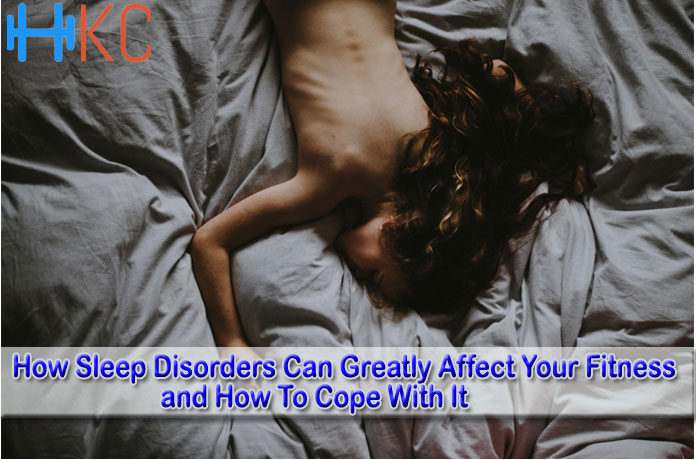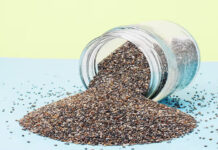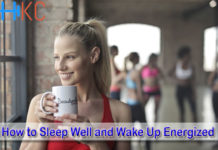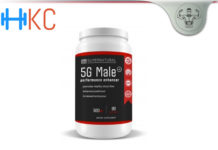Sleep quality is important to sportsmen and high-level athletes because it is vital for high levels of physical and mental performance, recovery process and general well-being.
Unfortunately, athletes do not benefit from optimal sleep conditions as they are exposed to circadian disruptions, sleep habit changes and stress muscular pain due to intense nighttime exercises. Failure to comply with this body requirement reduces the chance of an athlete to ace in the competition.
Not only does this issue is prevalent in athletes but also for a fitness enthusiast. Sleep deprivation could increase the risk of exercise-induced diseases and lowers the fitness level.
The sleep issue is a thing that should be taken for granted as a large number of population is significantly much affected by it. But there is more alarming to sleep deprivation, sleep disorders.
How do sleep loss and sleep disorders affect fitness? Keep reading to know more.
Effects of sleep loss on exercise-related injuries
Sleep time is equal to recovery time. According to Dr. Michael Breus, a clinical psychologist and diplomate of the American Board of Sleep Medicine, an individual need sleep to rebuild and repair the bodies. Recovery time is one of the most critical aspects of muscle contraction and protein building. Lack of sleep can lead to injury as it causes in significant reduction in muscle memory.
Some studies suggest that chronic or acute sleep loss is directly correlated to athletic injuries. Other authors term them as “fatigue-related injuries”. This injury is related to sleeping 6 hours the night before the injury and concluded that this reduced amount of sleep is a direct, independent risk factor for injuries during the exercise.
It was observed that after acute sleep loss, there is a dramatic increase in the risk of over-strain injuries to the locomotor system that could be linked to the decrease of proprioception and postural control and reaction time.
Sleep loss also impairs the functional recovery of muscles following injury. Specifically, eight hours of sleep deprivation acutely lower down the protein synthesis activity that repairs muscle damage and triggered contractile function deficits during recovery. These findings highlight the role of sleep in the regeneration of damaged muscle tissue.
Sleep Apnea Affects Fitness Level
You may wonder that climbing a bit of an incline or just a little work out will cause you to wind up huffing and puffing. You are not overweight though. So, what made you feel so unfit? This may be due to undiagnosed sleep apnea.
Sleep apnea is a severe sleep disorder which significantly affects breathing during sleep. It involves a soft tissue blockage of an airway within the throat. Snoring loudly and feeling tired even after a full night’s sleep are often symptoms of the condition. Sleep apnea affects 5 to 10% of adults in which overweight and obese are more frequently and severely affected.
In a study which took place at the University of California, San Diego of Medicine in La Jolla claimed that individuals who have sleep apnea appear to suffer from decreased aerobic fitness. The respondents were composed of 34 men and women. Nineteen had mild or no sleep apnea while the fifteen participants had been diagnosed with moderate or obstructive sleep apnea.
Each of the volunteers worked out on a stationary bicycle until they are too exhausted to ride any longer. During the exercise, scientists keep track of their VO2 max levels. VO2 Max levels refer to the maximum quantity of oxygen the body can use during vigorous activity. They found out that those with sleep apnea had a 14% lower VO2 max score than their counterparts without sleep apnea.
Researchers still found that those with sleep apnea had lower aerobic fitness even when tested to subjects with the same height or weight.
It is widely recognized that sleep apnea limits exercise due to several associated factors. From a cardiovascular point of view, sleep apnea syndrome is commonly associated with specific exercise response characteristics, like exaggerated blood pressure or delayed heart rate recovery. Additionally, people with sleep apnea had a significantly lower functional aerobic capacity and a higher post-exercise blood pressure than those without sleep apnea.
Does Insomnia Affect Athlete Performance?
The impact of insomnia on athletic performance is a crucial issue. Many athletes consider competition as stressful enough to impact their sleep the night before the event. They worry about the influence of poor sleep on their performance.
Few studies have been devoted to the impact of insomnia on the performance of athletes. Performance is defined as a mix of cognitive and physical excellence and the question is to understand how insomnia may affect both aspects.
Travel and jet lag are one of the contributing factors of insomnia to athletes. It disrupts sleep and is frequently experienced by athletes before a competition. The jet-lag disorder is defined as a circadian rhythm sleep disorder that occurs as a consequence of rapid travel through multiple time zones. Excessive sleepiness, fatigue, insomnia, irritability, dysphoric mood and gastrointestinal disturbance are commonly experienced by the traveler.
Insomnia may be associated with sleep deprivation and it has been proven that sleep deficit has consequences on several physical factors for performance in young athletes. Insomnia may be associated with increased sleep fragmentation, which may have a negative impact on daytime activity.
However, there is no specific data to prove regarding the performance of athletes with insomnia. It is easy to understand that attention, concentration and memory can also have a major impact in some sporting competitions and that insomnia may alter these factors of excellence in overall performance.
Other Sleep Disorders
Along with sleep apnea and insomnia, other sleep disorders such as restless leg syndrome (RLS) or hypersomnia may also have consequences on sleep and consequently on athletic performance.
RLS is a sensorimotor disorder characterized by uncomfortable leg sensations and an urge to move the legs which may also affect other body parts. People with RLS may experience pain or an electric current ran through the legs. This symptoms may be partially relieved by physical activity but may worsen during the night.
In Brazil, 13% of 61 marathon runners had RLS compared to a prevalence 7% in the general population. Several studies show that aerobic exercise is effective in improving RLS in patients with uremic RLS.
Hypersomnia patients compelled to nap repeatedly during the day such as during a meal, at work or in conversation. According to the National Institute of Neurological Disorders and Stroke, part of the National Institutes of Health they often have difficulty waking from a long sleep and may feel disoriented upon waking.
Other symptoms associated with this disorder may include decreased energy, restlessness, increased irritation, slow speech, hallucinations, slow thinking, loss of appetite and memory difficulty. Some patients lose the ability to function in the family, occupational, social and other settings. An athlete suffering from these symptoms may hinder his/her ability to perform well in a competition.
What exercise to recommend to sleep-disorder patients?
Yes, sleep disorders may hamper an athletic performance or a simple physical activity. However, in order to resolve sleep disorders, physical activities such as exercise is what is also highly recommended.
Exercise has been recommended as a non-pharmacological treatment for insomnia or sleep apnea. However, physical activity needed to be progressive in patients suffering from sleep disorders, starting at a lower intensity and preceded by a cardiovascular/physical checkup.
Every heart disease is at risk factor for exercise-induced cardiac events, during the exercise itself or the immediate recovery period. When recommending acute intense exercise to patients with sleep disorders, one should be cautious.
Patients suffering from sleep disorders are at probable risk for exercise-induced myocardial ischemia or coronary heart failure and acute coronary events. It is advised to have a cardiologic medical screening before starting a physical activity program. Moreover, physical exercise must be initially moderate and should be done progressively to improve endothelial function and decrease the risk of death.
Moderate aerobic training is considered sufficient to decrease inflammation, oxidative stress, insulin resistance and to prevent the risk of heart attack. Conclusively, it is recommended to patients suffering from a sleep disorder.
Takeaway
Sleep has a reciprocating relationship with exercise. Studies mentioned above proves how sleep deprivation affects your fitness levels. Conversely, several studies suggest that exercise helps improve sleep quality.
Indeed, we need both to support and maintain a healthy lifestyle. We need sleep to be fit in doing exercises. We also need exercise to promote better and quality sleep.























